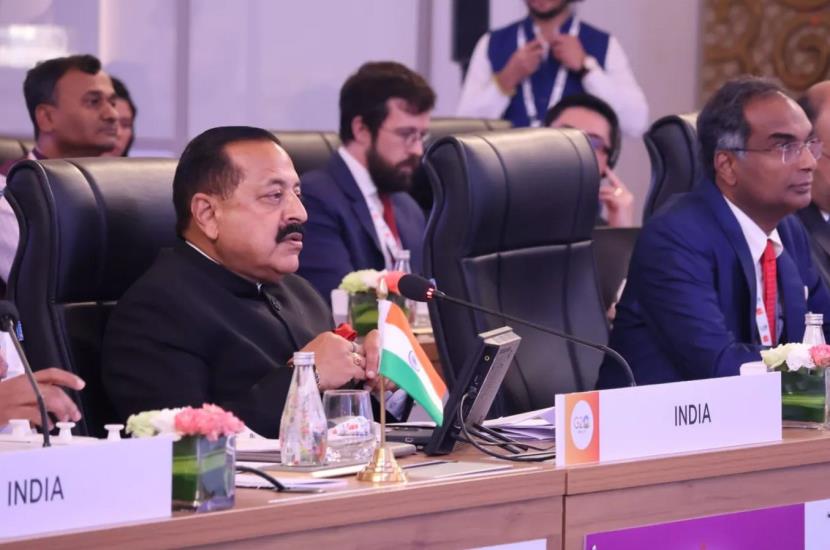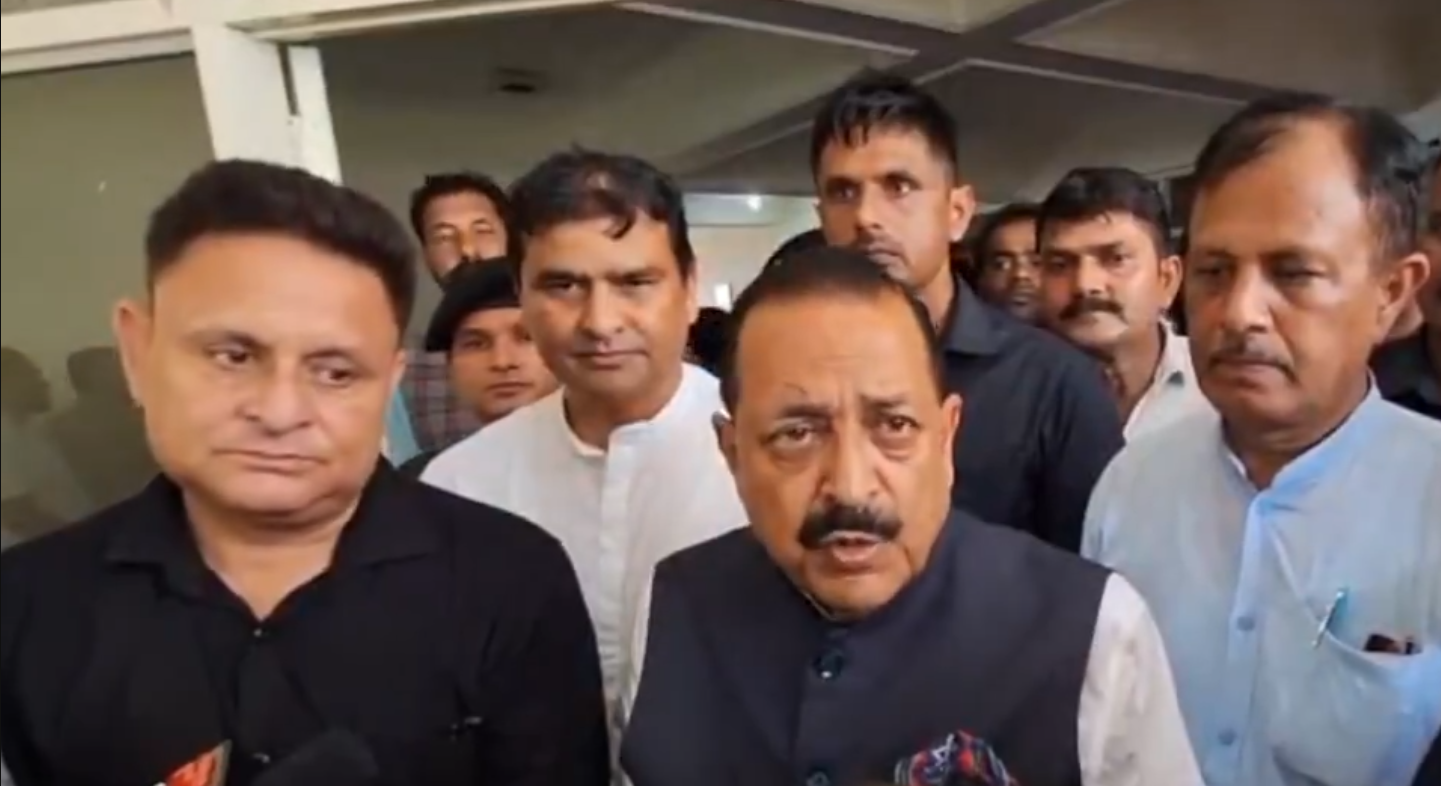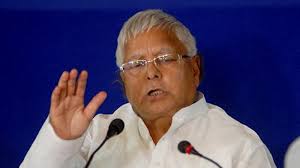MUMBAI: India on Wednesday asked the G20 countries to “rise above differences” and address the challenges confronting the world such as climate change, cyber security and water scarcity using their collective expertise.
In his inaugural address at the G20 Science Ministers meeting here, Union Minister of State for Science and Technology Dr Jitendra Singh said India recognises the significance of global collaboration and knowledge-sharing in addressing the complex challenges of today’s times, and Prime Minister Narendra Modi has talked about this at every international forum.
The minister called upon the G20 countries to leverage their collective wisdom, expertise and resources to foster a culture of innovation, promote sustainable development and ensure a prosperous future for all.
The G20 countries should “rise above differences” and address the global challenges confronting the world in the spirit of one family, he said.
This group has the potential to address major global challenges as it did recently while combating the COVID-19 pandemic, Singh added.
During its G20 presidency, India stands committed to advancing global research and innovation for a better tomorrow, the minister added.
In recent times, scientists and researchers have been at the forefront of cutting-edge discoveries and advancements across multiple disciplines like space exploration to artificial intelligence, from biotechnology to nanotechnology and have pushed the boundaries of scientific understanding and have fostered innovation that benefits humanity as a whole, he said.
As the world grapples with the challenges of climate change and depleting natural resources, it becomes imperative to harness renewable energy sources efficiently, Singh said.
He emphasised that the G-20 members should remain committed to their net zero goals and continue to work on sustainable development and renewable energy, and expressed satisfaction that the world has witnessed substantial growth in solar and wind power installations in recent years.
“Our scientists have been working tirelessly to discover and create materials that can revolutionise the energy sector, making it cleaner, more affordable, and accessible for all,” the minister added.
G20 nations must harness the power of technology and innovation to drive the transition towards cleaner energy sources and promote eco-innovations, such as smart grids, energy-efficient buildings, and sustainable transportation systems, as these initiatives not only mitigate environmental impact but also foster economic growth and create new avenues for job creation, he said.
He also pointed out that the G-20 community has advanced space technologies to predict and monitor various natural hazards like cyclones, tsunamis, landslides, and forest fires.
The products of these technologies should be shared the with countries outside the G-20 also, the minister said.
Developing quantum technologies, exploring quantum communication, cryptography and quantum algorithms are the next level of G-20 research agenda, Singh said.
“We aim to scale up scientific and industrial R&D, for accelerating Quantum Technology-led economic growth and leverage several economies into a leading nation supporting sustainable development,” he added.
Scientists have made significant contribution to genetic research and biotechnology, and these efforts hold immense potential for improving healthcare outcomes and addressing genetic disorders, Singh said.
As immunity is directly linked to our health and food, several systems encourage us to develop immunity through food we eat instead of relying on medication, he said.
Fintech ecosystems have grown in a tremendous way and a few economies have adopted virtual currencies whereas a few others are using virtual transactions to a large extent, the minister noted.
With rapid digital transformation, cyber-security has become a critical focus, Singh said, calling upon the scientific community to develop algorithms which are difficult for hackers to break.
“We need to strengthen our cyber-security infrastructure, develop advanced systems to protect critical digital assets and data,” he added.
The world has also witnessed the rise of several technology-based startups and these companies excel in developing AI-based solutions for various sectors including healthcare, finance, agriculture, and education, Singh said.
Singh also drew the attention of G20 delegates towards the immense potential of oceans and seas in terms of mineral resources, energy solutions and marine food resources, and said that by harnessing the potential of the Blue Economy, we can ensure the well-being of our oceans while driving economic development in a sustainable and responsible manner.
“We are also concerned about increased plastics and microplastics in our oceans, another important area to focus as it enters into our food chain as several marine organisms consume them,” the minister said.
Some G20 members are facing water scarcity and challenge of water quality while some others are moving in that direction, he noted, adding that precision irrigation, innovative clean water technologies such as water purification systems, desalination techniques and wastewater treatment technologies need to be further augmented and implemented.
India has so far hosted five meetings and conferences under priority topics of Materials for sustainable energy, Circular bio-economy, Eco-innovations for energy transition and Scientific challenges and opportunities towards achieving sustainable blue-economy.




















